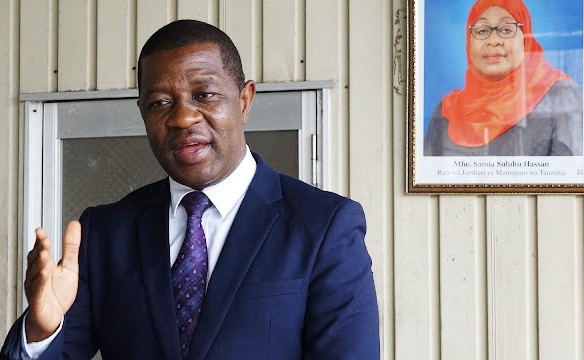WELCOME TO THE SCIENTIFIC CONFERENCE
.
LOCATION: AICC Conference Centre, in Arusha-Tanzania
DATE: 29 - 31 October, 2024
-
Participate Online:
Join FAR4ViBE Meeting
3RD FAR4ViBE SUB-THEMES:
FISHERIES,GOVERNANCE & BLUE ECONOMY
- Aquatic Ecosystem and Environment (AEE)
- Aquatic Biodiversity Assessment and Conservation (ABC)
- Fisheries Resource Assessment and Monitoring (FRM)
- Sustainable Fisheries and Aquaculture (SFA)
- Marine Biology and Ecology (MBE)
- Blue Economy and Governance (BEG)
- Socio-economics and Community Engagement (SECE)
- Climate Change Impacts and Adaptation Measure (CCIA)
- Technology and Innovation in Fisheries and Aquaculture Development (TIFAD)
Key Objectives:Understanding the Sector: Gain insight into the status, challenges, and opportunities within the fisheries sector. Knowledge Exchange: Facilitate the exchange of valuable insights and expertise among stakeholders. Fostering Collaboration: Encourage collaboration and cooperation to further advance research in fisheries and aquaculture. Problem-Solving: Identify key challenges within the fisheries sector and develop innovative solutions through interdisciplinary collaboration and research. Highlighting Achievements: Celebrate the new innovations and remarkable milestones in fisheries. |
Event Highlights:Expert Presentations: Renowned experts in the field will share their knowledge and findings. Interactive Workshops: Engage in hands-on workshops to explore cutting-edge research techniques. Networking Opportunities: Connect with peers, experts, and decision-makers in the industry. Exhibition: Explore exhibits showcasing the latest innovations and technologies in fisheries and aquaculture. Panel Discussions: Participate in discussions on the future direction of fisheries research in the sector. |
Event Details:Dates: October 29th to 31st, 2024 Location: Arusha, Tanzania Registration deadline: Closed Accommodation details: Book Nearby Hotels Excursion to Serengeti National Park: Join us from November 1st, 2024, after the conference. Enjoy a chance to experience the incredible wildlife. Learn more at Serengeti National Park. 3 Days 2 Nights in Serengeti (View plan and cost)Conference fees and excursion:
|
Come be a part of a transformative three-day event where we explore cutting-edge innovations in fisheries. Together, let's pave the way for the future of fisheries and aquaculture. Your presence and active participation are pivotal in shaping the trajectory of this crucial sector

